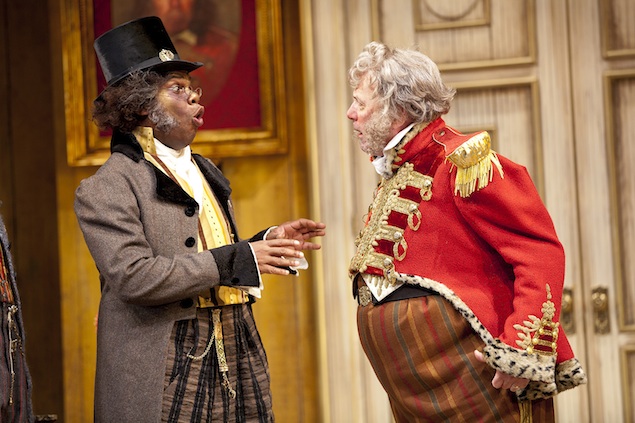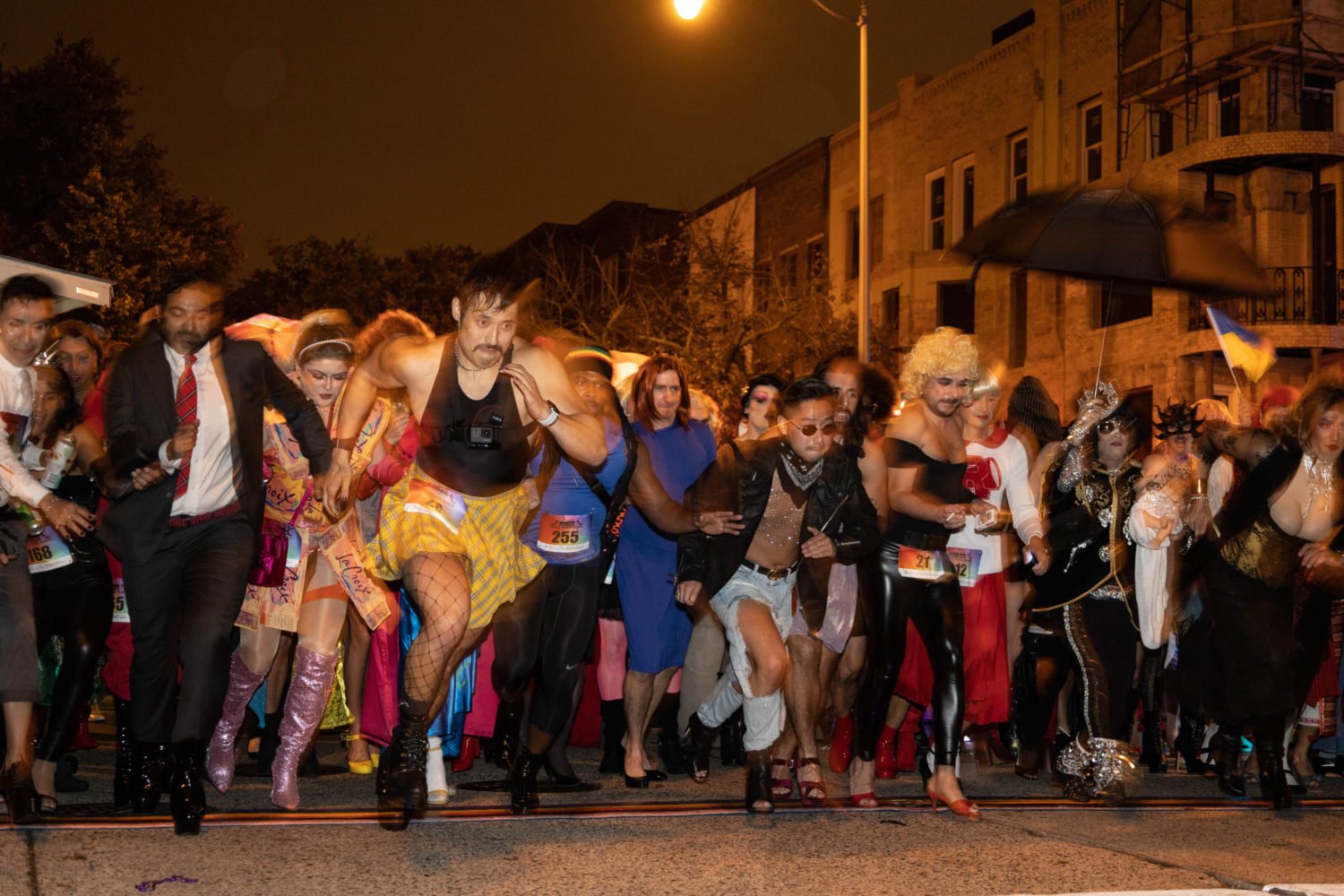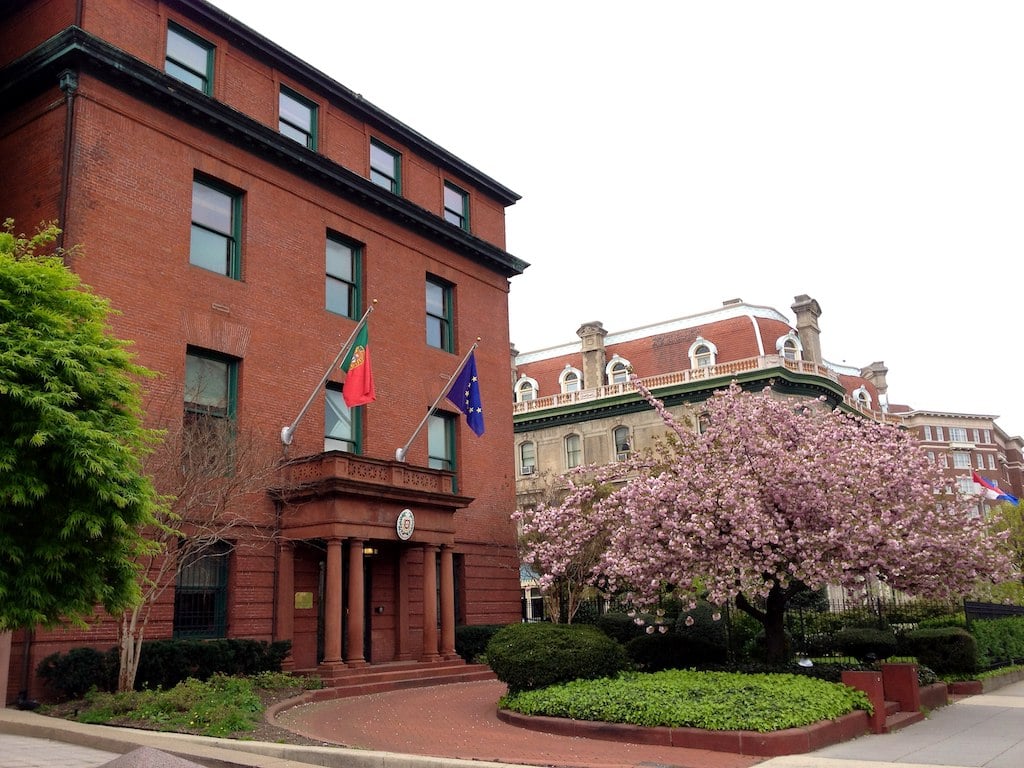
When a malfunctioning set piece threatened to derail Sunday night’s performance of
The Government Inspector at the Shakespeare Theatre Company’s Lansburgh Theatre, artistic director
Michael Kahn didn’t appear flustered. Instead, patrons waiting an extra 30 minutes in the lobby
before the theater doors opened were treated to a round of drinks on the house. The
congenial gesture set a fitting tone for the Russian comedy when it finally did get
underway. Diligent stage crew manually rotated the broken turntable between scenes,
working together like a team of determined oxen to rousing applause from a delighted
audience. The colorful, bumbling cast of characters in this adaptation of Nikolai
Gogol’s 19th-century work about small-town bureaucratic corruption received a similarly
warm reception.
Gogol’s political satire premiered in St. Petersburg in 1836 to such audience disdain
that the playwright spent the next decade in self-imposed exile. Tsar Nicholas I,
however, was impressed. “What a play!” the emperor is to have said. “It gets at everyone,
most of all at me!” And the observation still rings true in
Jeffrey Hatcher’s lighthearted adaptation. Morally questionable officials in a small Russian town
mistake a lowly visiting government clerk (Derek Smith) with a penchant for exaggeration for an undercover inspector and scurry to cover
up their many ethical misdeeds, lampooning local government hierarchies and hypocrisies
in the process.
Called “the most Russian of Russian plays,”
Inspector feels surprisingly loose and relatable while keeping its tongue-tripping Slavic character
names and many vodka references intact. Smith, starring as the clerk Hlestakov, is
endlessly entertaining, slick and charming enough to keep his true identity from the
foolish townspeople while still employing the slapstick humor that makes the show
work. The supporting cast is a very funny, if motley, crew. Standouts include
Rick Foucheux as the clueless, puff-chested mayor;
Harry A. Winter and
Hugh Nees as the Tweedledee-and-Tweedledum-like village gossips Dobchinsky and Bobchinsky;
and a very adaptable
Sarah Marshall playing an assortment of local hags.
A handful of other actors, such as
Claire Brownell as the mayor’s sullen daughter or
Craig Wallace as the town’s school principal, are a bit heavy-handed in their performances, taking
their roles from over-the-top to cartoonish in contrast to their nuanced castmates.
Their choice to play up the silliness is understandable, though, considering the production’s
almost Seussian look and feel. Bulbous potbellies, pompadoured locks, and facial hair
of all shapes, sizes, and colors fuel a subtly fantastical aesthetic that is eclectic
but never busy or off-balance. Bright costumes and makeup offer an added punch, infusing
the nearly two-centuries-old material with freshness.
Even with its extreme atmosphere, the show is effective in its realism, however exaggerated.
Gogol’s knack for capturing the greed, arrogance, and folly so common in “civil service”
seems just as relevant in modern-day America as it must have in the 19th century Russian
climate that inspired him. Cases of mistaken identity and an outsider impacting a
community of eccentric personalities are familiar dramatic territory, but this production
doesn’t feel stale. Under Kahn’s direction,
Inspector is lively and funny, sharp, but never cutting. The set-fixing crew wasn’t the only
team hard at work at this performance—though from the outside looking in, they made
it look easy.
The Government Inspector
runs through October 28 at the Shakespeare Theatre Company’s Lansburgh Theatre. Running
time is about two hours, including one intermission. Tickets ($43 to $95) are available
via Shakespeare Theatre’s website.
















